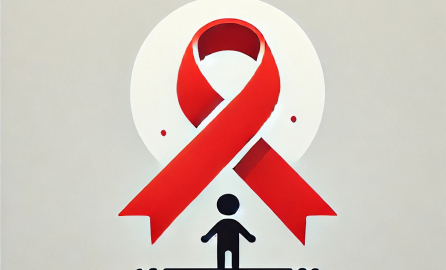While the world is making progress in preventing and treating AIDS, the needs of 90% of AIDS orphans are not being met. For charities and international organisations it is time to make these children a priority in the fight against HIV and AIDS.
Some 30 years into the AIDS epidemic, fewer people are becoming infected with HIV and fewer people are dying from AIDS. But the epidemic continues to leave behind a growing number of orphans.
According to UNAIDS, there are 16.6 million children worldwide that have lost one or both parents to AIDS. Almost 15 million of them live in sub-Saharan Africa.
In the field, hundreds of projects are already helping AIDS orphans live a better life. Despite these efforts, still less than one in ten of these children receive any external support.
At the conference hosted on 5 May by the European Commission in Brussels on the occasion of the World AIDS Orphans Day, UNAIDS and civil society organisations called on world leaders to make these children a priority.
Loraine Mukazi, who was herself orphaned by AIDS, spoke up for the millions without a voice.
“Being an AIDS orphan is like become an adult very quickly, a parent for your own parents, a head of a family,” said Ms Mukazi. ”Losing a parent is already difficult, losing a parent to AIDS even more so, as you are confronted with the denial, taboo, stigma and countless questions.”
AIDS is a disease of the human immune system and caused by the human immunodeficiency virus, HIV.
In Africa, shame and witchcraft are still too often associated with AIDS. As a result, in addition to the trauma of losing a parent, orphans like Ms Mukazi are often subject to discrimination and may be less likely to receive healthcare, education and other needed services.
For the NGOs present at the EC conference, it is a real challenge to face such entrenched beliefs, which stigmatise entire families. These NGOS have embarked into awareness raising activities in order to help people affected by AIDS opening up and rebuild not only their self-esteem but also the self esteem of the whole affected person's family.
"We also need better social protection for families affected by AIDS and break the vicious circle where orphans and other children become highly vulnerable to HIV", said Henning Mikkelsen, UNAIDS Representative to the European Union.
Experts agree that child-sensitive social protection should focus on aspects of well-being that include providing adequate child and maternal nutrition; access to quality basic education; supporting families and caregivers in their childcare role; addressing gender inequality; preventing discrimination and child abuse in and outside the home; reducing child labour; increasing caregivers’ access to employment or income generation; and preparing adolescents for their own livelihoods, taking account of their role as current and future workers and parents.
Henning Mikkelsen expressed the hope that at the upcoming General Assembly High Level Meeting on AIDS from 8 to 10 June in New York, "there will be a real understanding on AIDS orphans' needs by the world leaders". "Not only by European leaders", he added, "but by African leaders too. We need to take this problem seriously and invest".

Log in with your EU Login account to post or comment on the platform.